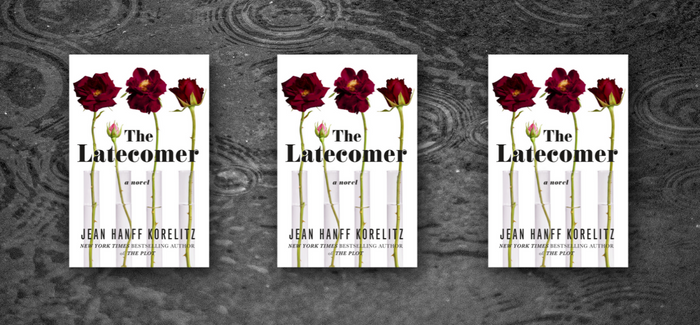Books
Fiction
Dysfunctional Family Secrets In ‘The Latecomer’

The Latecomer
by Jean Hanff Korelitz (Celadon Books)
How can one write a book about secrets without giving any of them away? That is the conundrum presented by best-selling author Jean Hanff Korelitz’s complex new novel, The Latecomer, which opens with a tragic car accident. Salo Oppenheimer, a wealthy Jewish college student in New York, is the driver in a crash that kills two fellow Cornell students and leaves one seriously injured. He meets his future wife, Johanna Hirsch, at one of the funerals for the victims, and she makes it her mission to heal his psychological wounds. The crash forever changes Salo, yet neither he nor Johanna share the story—the source of his emotional distance—with their four children.
The three oldest children—triplets Harrison, Lewyn and Sally, born through in vitro fertilization—are meant to be Johanna’s gift to Salo, to heal him. They are reared with every advantage that wealth and Johanna’s devotion can offer, but Salo remains an absentee father and husband. He saves his passion and interest for his contemporary art collection, stored in a warehouse for his viewing alone.
Tolstoy famously noted that every unhappy family is unhappy in its own way, and this is one very unhappy family, with the children and Johanna struggling to understand why. At some point, each of the triplets wonders at their disconnect from each other, why they seem to be “in full flight from one another as far back as their ancestral petri dish,” as Korelitz writes. Or perhaps their unhappiness is caused by progressive excesses in the American private education system. All of them despise their elite Brooklyn private school, despite its policy of no tests, no grades and praise for every student.
The book is divided into three sections: The first focuses on Salo and Johanna; the second on the triplets; and the final section on Phoebe, the titular latecomer and fourth child, born just before the triplets leave for college. She is born via surrogate from a frozen fourth embryo that had remained after the IVF treatments that produced the triplets, but that fact is kept secret from Phoebe. This daughter might be Johanna’s final attempt at a “gift” for Salo, to bring him back to the family, or a way to punish him when she uncovers one of the secrets behind his many absences from the family.
Korelitz’s last novel, the best seller The Plot, revolved around one big secret. The Latecomer, however, is suffused with many of them, around birth, betrayal, sexuality and family. One small example: Sally and Lewyn both attend Cornell, yet do not acknowledge among their classmates that they are siblings, an omission that leads to its own tragic denouement. In addition to infertility and American education, the novel touches on several social issues: family trauma, wealth and privilege, faith and racism. But perhaps Korelitz’s broadest theme is an examination of what makes a family—genes, birth or cohabitation? Or is it love? Do the Oppenheimers actually love each other?
This is a long book—450 pages spanning 45 years—and it is somewhat slow-going at first. But when Phoebe appears, the pace picks up. On the verge of adulthood, she’s the catalyst for the uncovering of secrets, the repudiation of lies and, at last, some family healing.
Elizabeth Edelglass is a fiction writer, poet and book reviewer living in Connecticut.










 Facebook
Facebook Instagram
Instagram Twitter
Twitter
Leave a Reply